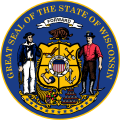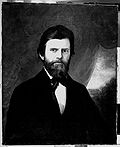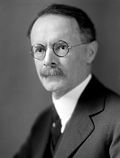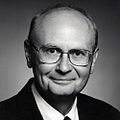| Speaker of the Wisconsin State Assembly | |
|---|---|
 | |
| Wisconsin State Assembly | |
| Style |
|
| Status | Presiding officer |
| Seat | Wisconsin State Capitol, Madison, Wisconsin |
| Appointer | The Assembly |
| Term length | At the Assembly's pleasure; elected at the beginning of the new Legislature by a majority of the representatives-elect, and upon a vacancy during a session. |
| Constituting instrument | Constitution of Wisconsin |
| Formation | June 5, 1848 |
| First holder | Ninian E. Whiteside June 5, 1848 |
| Deputy | Speaker pro tempore |
| Salary | $53,299 [1] |
The Speaker of the Wisconsin State Assembly is the presiding officer of the Wisconsin State Assembly, the lower house of the Wisconsin Legislature. Article IV of the Constitution of Wisconsin, ratified in 1848, establishes the legislature and specifies the election of officers. The role and responsibilities of the speaker are defined in the Assembly Rules, originally in Rule 1, and also, under the present rules, Rule 3. [2]



















































